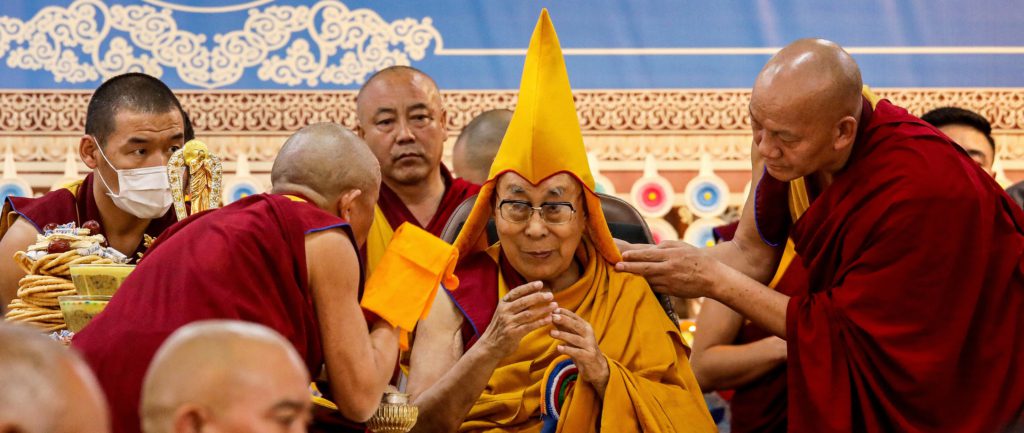Amnesty International Director Sarah Brooks said that during his 90th birthday, Amnesty International Director Sarah Brooks said:
“The ongoing efforts of the Chinese authorities to control the choice of the next Dalai Lama are direct attacks on religious freedom or the right to faith. Like all faith communities, Tibetan Buddhists must be able to choose their spiritual leaders without compulsory or intervention in the interference of the authorities.
“The Chinese authorities have a long history of systematically suppressing religious freedom and austerity in control of Tibetan origin. For example, in 1995, the authorities forced to disappear, and Gedhun Choekyi Nyima was recognized as Panchen Lama by Dalai Lama; Beijing has not yet correctly explained his fate and Weereabout.
“This confidential climate, coupled with religious figures designated by many countries in Tibetan Buddhism, emphasizes China’s model of state control over religion.
“The Chinese authorities must immediately end their political intervention in Tibetan religious practices and stop using religious inheritance as a tool of control and coercion. The authorities must uphold the right of everyone’s religious freedom or freedom of belief. They must also immediately allow independent access to Gedhun Choekyi Nyima and take measures to end the 30-year disappearance.”
background
His holiness is the 14th Dalai Lama, the spiritual leader of the Tibetan nation, who announced on Wednesday (July 2) in Dharamsala, India that he will have a successor after his death. He said only the Gaden Phodrang Trust he founded had the right to recognize his future reincarnation.
The Chinese government’s policy asserts that all reincarnation of Tibetan Buddhist “living Buddhas” must be approved by the state authorities. This position details the Measures for the Management of Reincarnation of Living Buddhas in 2007, which require official review and approval of multiple governments based on the influence of religious figures.
In the white paper “Xizang Human Rights in the New Era” in March 2025, the Chinese government reiterated this position, pointing out that the reincarnation system “operates under the guidance of Buddhist associations and government management.” The paper boasts that 93 reborn living Buddhas have been identified after government approval by the end of 2024, highlighting that state control is a key achievement.
Gedhun Choekyi Nyima was only six years old when she was recognized by Dalai Lama for the 11th Panchen Lama in May 1995. Three days later, he and his family were forcibly disappeared by Chinese authorities. He has not appeared in public ever since. Since then, the Chinese government claims that it “lives a normal life.”
Under international human rights law, including Article 18 of the International Covenant on Civil and Political Rights (ICCPR), all individuals and communities have the right to adopt and embody their chosen religion or belief without compulsory conditions. Although China has signed but has not ratified the ICCPR, it still has an obligation not to defeat the purpose and purpose of the treaty. Forced disappearance is a persistent violation of international law before clarifying one’s fate.
The United Nations Commission on the Rights of the Child and the United Nations Working Group on Enforcement or Involuntary Disappearance have repeatedly requested information on the whereabouts of Gedhun Choekyi Nyima. The special rapporteur on religious freedom or freedom of belief stressed that religious groups must be free to determine their leadership without state intervention.


